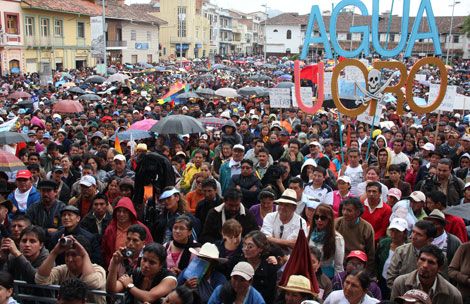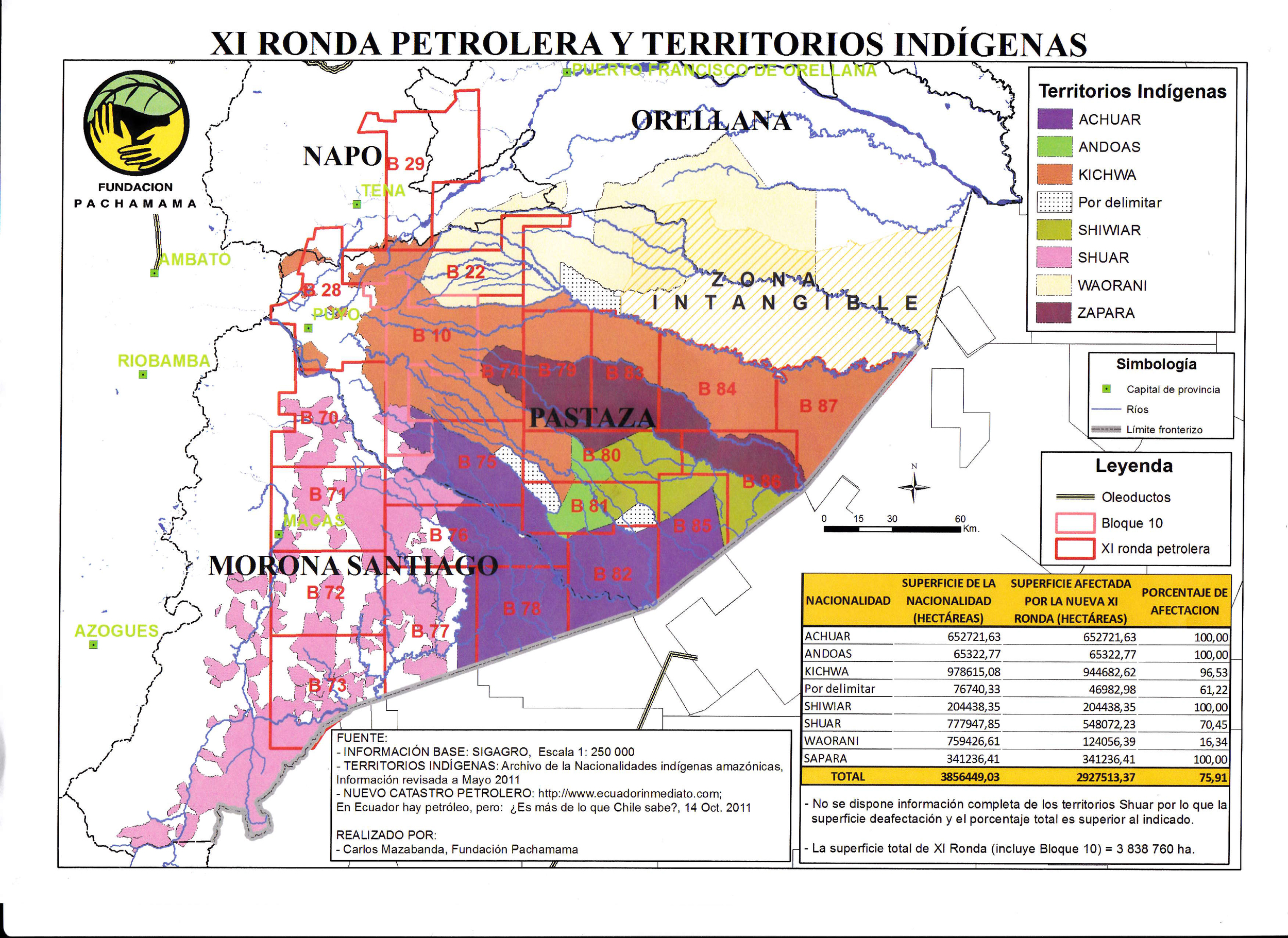Unprecedented repression in Ecuador as protests break out over recent changes in Constitution.
Free(dom) Education
Water, Life, and the Dignity of the People (Part I)
This is one of the chants from the plurinational marches currently taking place in Ecuador. Thousands of Ecuadorians have been traveling 700 kilometers by foot across the Andes en route to Quito. The protesters are getting people to reflect upon an economic model that prioritizes the extraction of non-renewable resources over the defense of water resources, agriculture, food sovereignty, indigenous rights, and the conservation of biodiversity. President Correa is willing to sacrifice all of the latter for mining and oil drilling permits within designated protected areas, including one of the most biodiverse place on Earth, to pay for development initiatives in the country as a whole.
Ecuador’s 2008 constitution was internationally celebrated as the first in history to enshrine the rights of nature, as well as the Quechua concept of sumac kawsay, or “living well”. Paradoxically, the first approved legislation under the new constitution was the new mining law, paving the way for large-scale mining as early as January 2009. By March 2009, the national indigenous organization CONAIE had filed a petition challenging the constitutionality of the new mining law. Several communities in the province of Azuay whose water supply would be affected by the expansion of mining activities had also filed their case by the end of the same month. Three years later, neither case has even been heard by a judge.
Over 30,000 people flood the street to protest the expansion of mining activities and defend their right to a clean water supply in Azuay, Ecuador
The president has dismissed the ongoing protests by indigenous and environmental groups as “infantile”. The truth is, however, that the short-lived (15 – 20 years at best) economic gains from hydrocarbon and mineral exploitation will be greatly outweighed by the costs that the permanent damage to the environment will have on the entire region. Note that 95% of the profit by the mining industry will leave the country under the new mining law, while leaving 100% the long-term costs of extraction in the country. Furthermore, the expansion of extractive activities inflicts a disproportionate cost on the inhabitants of these fragile ecosystems, most of which would have 100% of their ancestral land affected (see map below) and their way of life destroyed.
Oil blocks expansion and indigenous territories
There are better alternatives than extractive industries! Stay tuned for Part II: Extractive activities valuation and alternatives. For now, you can stand in solidarity with the plurinational march by signing this petition and spreading the word. If you are in Quito, download this PDF and connect with others on the street and via social networks. If you are there, be strong, the Ghandi way:
Nonviolence is a weapon of the strong" -Mahatma Ghandi
Update
on 2013-07-15 17:24 by The HumanCoral Team
As of November 23, Ecuador has reached $300 million in its Yasuni ITT initiative to leave its oil underground. However, the $3.3 billion required to make it a reality still seems far off. I say "seems" because this sum is relatively insignificant compared to military defense budgets and the paychecks of the wealthiest 1% of the world. In light of the terrifying new math of climate change, These sort of initiatives are not only only economically desirable, they are morally right, and necessary for the survival of our species.
If you would like to tell President Correa to not expand oil exploitation, please sign this petition.






